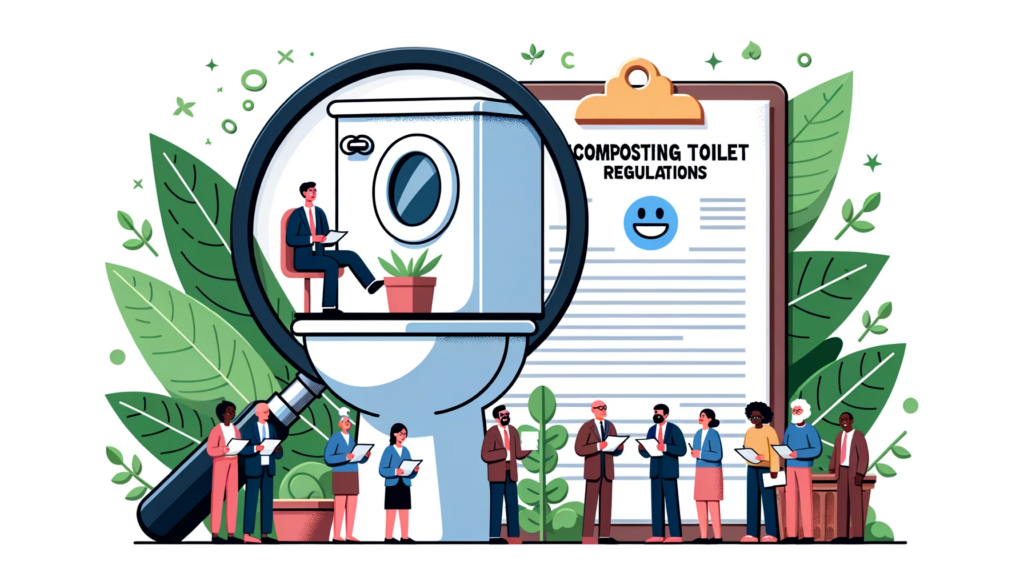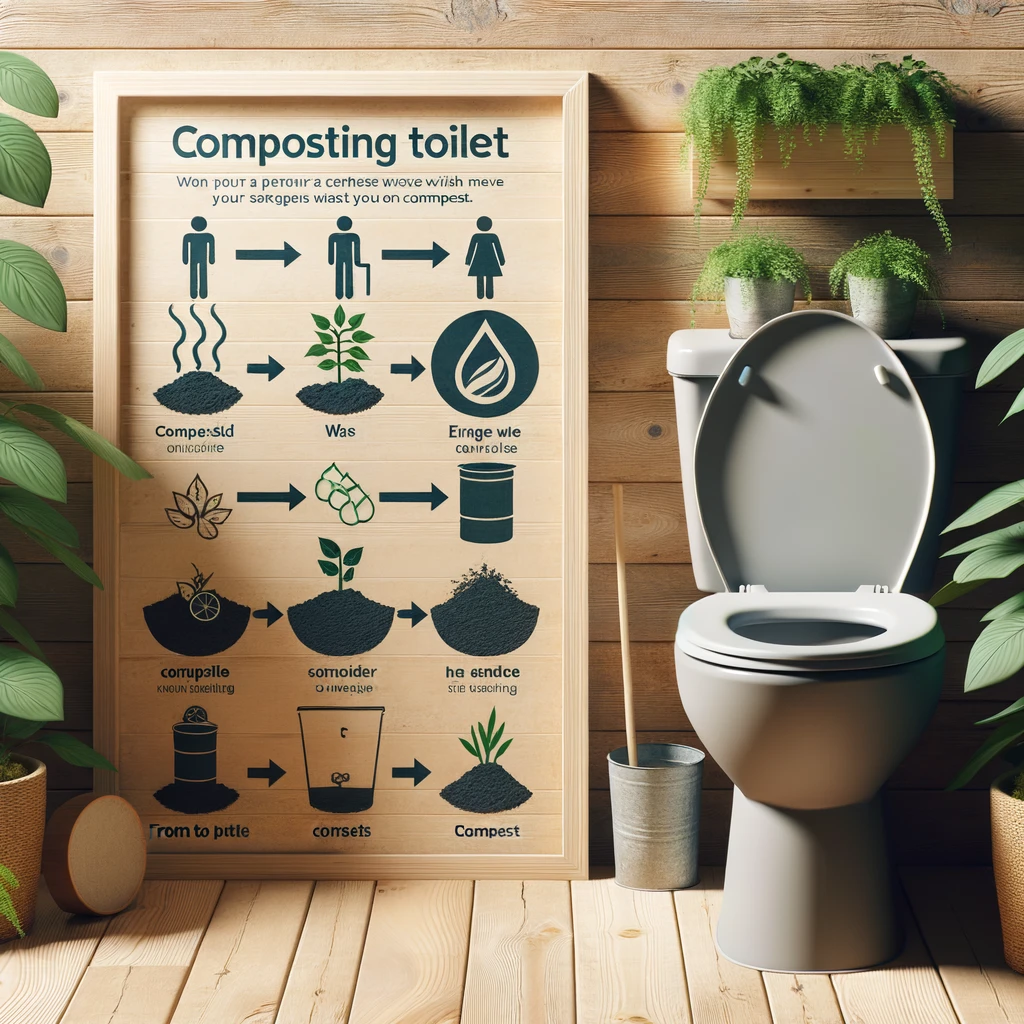
Composting toilets, an eco-friendly alternative to traditional flush toilets, have gained popularity in recent years, especially among those who are environmentally conscious. But a common question arises: Are Composting Toilets Legal?
The short answer is, that it varies depending on where you live.
[toc]
Key Takeaways
- Composting toilets are legal in many places but may have restrictions.
- Local regulations, building codes, and environmental standards play a role in their legality.
- It’s essential to check with local authorities before installing a composting toilet.
- Composting toilets offer environmental benefits but must be maintained properly.
Are Composting Toilets Legal: Understanding Composting Toilets

What is a Composting Toilet?
A composting toilet is a type of toilet that uses a natural process to break down human waste into compost-like material. Unlike traditional toilets, composting toilets don’t use water for flushing. Instead, they rely on aerobic bacteria to decompose the waste.
How Do They Work?
Imagine a garden compost bin but for human waste. The process is similar. Waste is collected, and over time, with the help of bacteria, it breaks down. The end product is a humus-like material that can be used as a soil conditioner.
More Details:
The concept here is that of a human waste compost bin, which functions much like a garden compost bin. This innovative idea aims to utilize human waste effectively and sustainably, reducing the environmental impact and creating a valuable resource at the same time.
The process would start with the collection of human waste, much like we do with garden waste. The waste could be collected from toilets designed specifically for this purpose, which separate solid waste from liquid waste.
The collected waste would then be deposited into a specially designed-compost bin. This bin would need to be sturdy, well-ventilated, and designed to prevent any leakage or contamination of the surrounding area. It would also need to be rodent-proof to prevent any potential health hazards.
Once the human waste is inside the compost bin, nature’s process begins. Just like in a regular compost bin, bacteria play a crucial role in breaking down the waste. These bacteria, along with other microorganisms present in the waste, start to decompose the material.

The decomposition process requires careful management to ensure it is safe and effective. Measures need to be implemented to control the temperature, as the composting process generates heat, which aids in killing off pathogens. Also, the moisture levels need to be regulated to prevent the compost from becoming too dry or too wet, which could halt the composting process.
Over time, through the action of the bacteria and other microbes, the human waste breaks down into a humus-like material. This end product is highly rich in nutrients and can be used as a soil conditioner, similar to compost made from garden waste.
The soil conditioner produced from this human waste composting process can be used in gardening or farming. It can enrich the soil and enhance its quality, thereby promoting the growth of plants.

Benefits of Composting Toilets
- Eco-friendly: They reduce water usage and prevent wastewater pollution.
- Cost-effective: No water bills for flushing.
- Space-saving: Ideal for remote areas, tiny homes, or places without sewage systems.
Are Composting Toilets Legal: Legality Across Different States
The legality of composting toilets varies from one state to another. Here’s a look at some states and their stance on composting toilets:
Texas
In Texas, composting toilets are legal with restrictions. They must meet specific health and safety standards, and homeowners might need to obtain a permit.
Hawaii
Hawaii requires a permit for the installation of composting toilets. The state has guidelines on their design, installation, and maintenance.
California
The legality in California varies by county. Some counties allow them, while others have strict regulations or even prohibitions.
New York
In New York, composting toilets are allowed in some areas, especially in rural or off-grid locations. However, they must meet sanitation standards set by the state.

Realistic Analogy and Metaphor
Analogy: Think of a composting toilet as a home garden. Just as you’d turn and maintain your garden compost to help plants grow, you maintain a composting toilet to break down waste.
Metaphor: A composting toilet is like a mini ecosystem, turning waste into valuable resources.
Watch Video: Are Composting Toilets Legal in Hawaii?
Are Composting Toilets Legal? Precautions & Considerations
Before deciding to install a composting toilet, it’s crucial to:
- Check Local Regulations: Always consult with local health departments or building authorities.
- Maintenance: Regular maintenance is essential to ensure the toilet functions correctly and remains odor-free.
- Training: Ensure all users know how to use the toilet correctly.
Remember, while composting toilets offer numerous benefits, they might not be suitable for everyone or every location. Always do thorough research and consider consulting with professionals before making a decision.

Understanding the Broader Implications
The debate around composting toilets isn’t just about waste management. It’s about a shift towards sustainable living, understanding our impact on the environment, and making choices that benefit not just us, but the planet as a whole. As more people become aware of the benefits and challenges of composting toilets, it’s essential to have clear, accurate information to make informed decisions.
Remember, while composting toilets offer many advantages, they also come with responsibilities. Proper maintenance, understanding local regulations, and being mindful of the environment are all part of the package.



